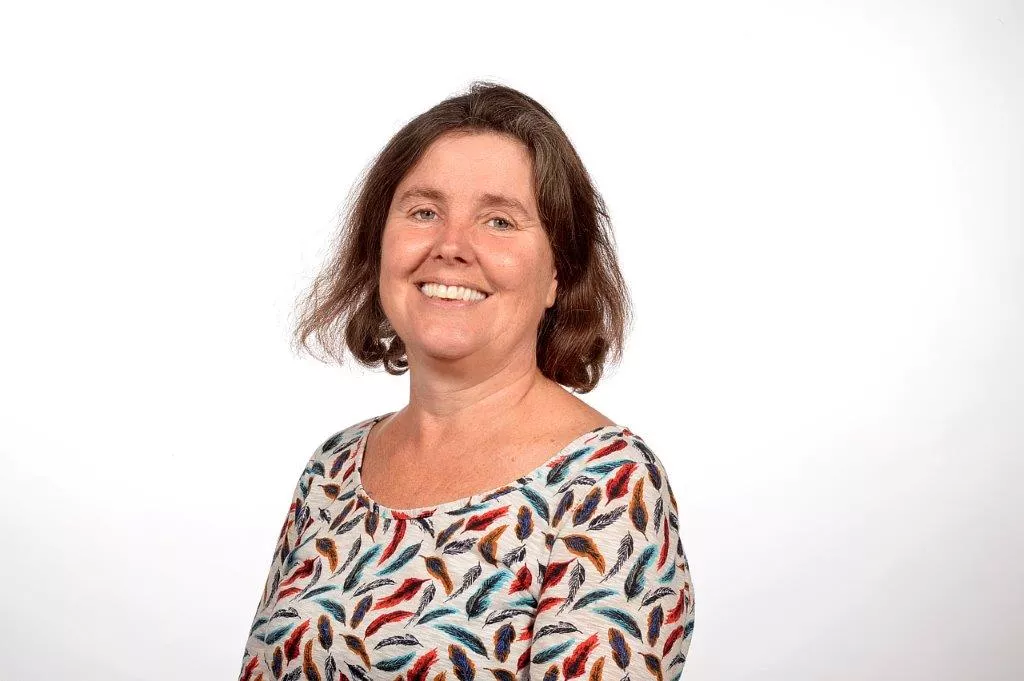
I feel like a conductor. The musicians are all the climate-active healthcare professionals whom I am collecting locally, regionally, and nationally, and who do not yet know they are part of my Orchestra of Hope.
My mission to build this Orchestra has led to a busy start to 2025, and I have found my collection of people expanding rapidly and widely to include educators. I started with a keynote speech at the Association for Science Education Conference at Nottingham University. It had a remarkable impact on my audience and has, of course, resulted in many more requests to contribute to conversations about health, climate, and how we teach our children and young people about it, equipping them for a low-carbon, healthy, and hopeful future.
Please indulge my metaphor—I see education as the Choir that sits alongside the Orchestra of Hope. Bringing the depth to the music and enhancing the story.
Locally, I teach all the 4th-year medical students about sustainability and have a series of students doing a special study module on sustainability. I always start by inviting them to my home to share my inspiration from Hockerton Housing Project and make soup! My student Stella took home my spare pressure cooker and was delighted to cook potatoes in 3 minutes, saving a lot of gas, steam, and condensation, which matters when you live on a boat! During her month, she joined many of the meetings I describe in this blog to understand the breadth of this subject and how much there is to do.
My other educational action this month has been to reach out to Professor Jane Norman, who is the new Vice Chancellor at the University of Nottingham and a professor in feto-maternal medicine. We need to start our climate conversations much earlier, and I have appealed to her to get it into the curricula of every healthcare undergraduate and ideally every undergraduate, as health is for all. Isn’t it?
Mid-month, I spoke to our local Practice Managers Forum (Primary care) and discovered a colleague who is doing a sustainability Phoenix fellowship, whom I have promptly added to my Orchestra. The following day, I spoke to a group in our County Council. This included our public health team who are doing lots of great stuff, particularly related to health inequalities and the under 5s. Another group of health professionals we can learn so much from.
At the end of the month, I joined an ICB Non-Executive Directors timeout session with colleague Lindsey to talk about our Greener ICS, pitch a new vision, and explain what we need. Again, this was well received but is only the first step; we only had 30 minutes! We are trying to hold their attention for a bit longer by sending them each a copy of There’s No Planet B as a gift, while Lindsey writes to them to remind them what we are committing them to!
Closer to home at Sherwood, I have chaired a couple of meetings about nitrous oxide and “brain dumped” 2 years' work into a massive Excel spreadsheet (PID or project initiation document), thanks to our QI team. It is now down on paper with a QIA and risk assessment with trackable and measurable outputs, which is a good thing. The important thing is that we have made the switch from the manifold at our smaller hospital in Newark.
Behind all this, I have been working with Lindsey to get new fellowship funding to develop our multidisciplinary “faculty” with plans for QI fellows in my own trust and GP fellowships for the ICS. Our ICS group has just got MSc students doing a project on resilience, and we have asked a colleague at Nottingham Trent University to give us MSc students to work from a “management” perspective. Like any good orchestra, we need the support team as well as the musicians to make the music happen!
At the RCPCH, we launched our Clean Air Companion, and I have completed an accompanying learning module and received a certificate from myself as Officer for Climate Change. It was easy to do, less than 30 minutes, and the videos are a great resource to model conversations. We have been busy assembling speakers and the programme for our clean air and climate sessions at our college meeting in March. For me, this is mostly light touch, as we have such a great clinical (Alice, Harry, and Emily) and staff team (Zara, Fliss, and Georgia) working on this, for which I am very grateful. The separate climate change session at the conference is also very exciting, with some great abstracts and a panel discussion on the wider work needed to truly decarbonise the NHS in terms of pharmaceuticals and procurement. As clinicians, we need to engage with this and collaborate. 60% of NHS carbon emissions are clinical!
So I hope the Orchestra metaphor makes sense. There isn’t much overt paediatrics in there, but it all matters if our children are to have a hopeful, healthy future and have the opportunities and life chances that we have had. My vision is for the many NHS “orchestras” and education “choirs” to stand up together and make this happen. What a powerful and amazing sound we could create!
I hope the Orchestra metaphor resonates with you. While there isn't much overt paediatrics mentioned, every effort matters if our children are to have a hopeful, healthy future with the same opportunities and life chances we've enjoyed. My vision is for the many NHS “orchestras” and education “choirs” to unite and make this happen. Imagine the powerful and amazing sound we could create together!









